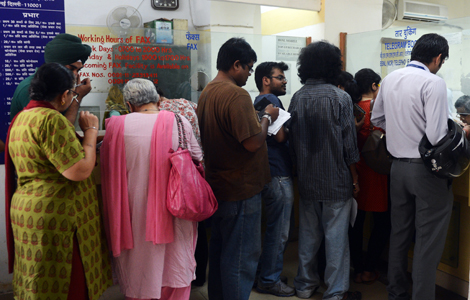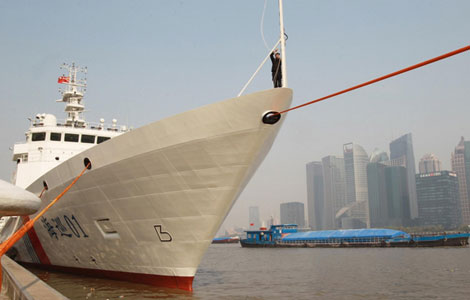Lin Yifu: State must control capital
Updated: 2013-07-15 11:03
(china.org.cn)
|
||||||||
 |
|
Justin Yifu Lin, honorary dean of the National School of Development with Peking University and former chief economist with the World Bank. |
Editor's note: Justin Yifu Lin, honorary dean of the National School of Development with Peking University and former chief economist with the World Bank, discussed at the China's Opportunities and Challenges academic forum, hosted by the Boyuan Foundation, his views on the ongoing liquidity crisis in Chinese banks, China's economic growth and capital control.
The Wall Street Journal reports that Chinese banks have asked the nation's central bank to offer more liquidity relief to save the market. Do you think it's necessary for the central bank to do so?
Lin: I did not see or hear any commercial banks pressuring the central bank to increase liquidity provision. I guess these reports are assumptions. As for the position of the head of the central bank, it is his responsibility to maintain the stability of China's macro-economy, its financial system and its order. If the current liquidity shortage proves harmful to the nation's stability, under the circumstances, it is the central bank's responsibility to increase the supply of money.
Recent statistics show that China's economic growth has slowed down. Some people think that this is related to the 2008 4-trillion-stimulus-plan. What's your opinion on this?
Lin: In my opinion, the momentum of Chinese economic growth comes from a troika consisting of trade, investment and consumption. As far as consumption goes, its growth reached 9 percent annually up to last year. Nevertheless, the other two have slowed down in terms of growth speed. Trade has been affected by the slowdown of consumption growth in developed economies which have suffered a severe blow from the global financial crisis that broke out in 2008. For example, last year's export growth was only 7.6 percent, an almost 10 percent drop from the average annual growth rate of 17 percent sustained since 1979.
As for investment, we had a 4 trillion stimulus package in 2008. Most are large-scale investment projects. Nonetheless, investment growth has been very slow compared with that of the other two. For that reason, the troika has been running slower than before. It is simply a periodic problem in the overall economic growth.
Do you mean that the economy will regain a high speed growth in the future?
Lin: I would rather say that it has the potential to do so. Whether it can regain a high speed or not depends on the correct and suitable policies, and a favorable environment for investment and consumption. We need to further our reform.

 Protests erupt after verdict
Protests erupt after verdict
 Color Run in London promotes healthy living
Color Run in London promotes healthy living
 Urumqi residents hand in weapons
Urumqi residents hand in weapons
 Pool jammed in summer heat
Pool jammed in summer heat
 Last stop for the telegrams of India
Last stop for the telegrams of India
 Heavy rain, strong winds as Soulik heads inland
Heavy rain, strong winds as Soulik heads inland
 8 dead, 19 injured after bus leaves road in Jinghong
8 dead, 19 injured after bus leaves road in Jinghong
 China's largest salvage vessel visits Indonesia
China's largest salvage vessel visits Indonesia
Most Viewed
Editor's Picks

|

|

|

|

|

|
Today's Top News
Air crash students return to families
Snowden says he won't release harmful US data
Local governments face financing woes
Zimmerman not guilty
Q2 GDP growth slows to 7.5%
More foreign firms in IPR cases
Urumqi residents hand in weapons
Largest vessel visits Indonesia
US Weekly

|

|






